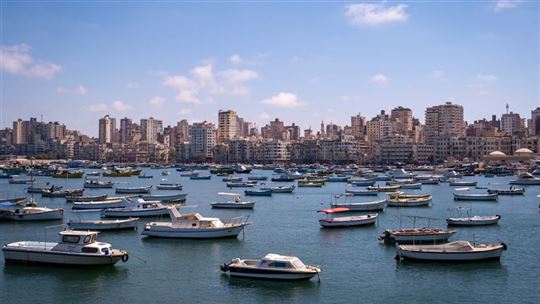
Fr. Claudio Lurati: “God still calls me to Egypt”
The Holy See has just announced the appointment of the Comboni missionary as Apostolic Vicar of Alexandria. He returns to the place where he lived for twelve years and where he saw works and great friendships flourish.It is a small flock, that of the Roman Catholics in Egypt. Seventy thousand faithful, a minority within a minority Christian community that includes many families – the most numerous are the Coptics – born of an ancient history rooted in the pluriformity of the Church. A few days ago, Pope Francis called Fr. Claudio Lurati to guide them. He was born in 1962 in Como and - like the founder of the congregation to which he belongs - has long carried Africa in his heart. After his baccalaureate in Theology in Kenya, he lived in Verona for five years, one in Sudan and twelve in Egypt. Then he was in Rome as treasurer general. Now he has been appointed Apostolic Vicar of Alexandria, where he will find many friendly faces.
"Being such a small community in a country strongly marked by Muslim presence is a great opportunity to rediscover the reasons for a presence that does not depend upon numbers or works, which also have their value,” says Fr. Claudio: "The reasons are given to us by the person of Jesus whom we are called to witness with our lives, seeing with amazement that he can thus reach the most unexpected people and places, and that meaningful relationships and multiple possibilities of walking together can be born, even with those who are different from you.”
Two channels of witness and dialogue that have borne much fruit are the schools founded by the Church - which enjoy great prestige in the country for the quality of education and where the attendance of Muslim students reaches 50% of students- and the works of charity such as dispensaries, medical centres, initiatives for the training of women and in favour of refugees and displaced persons coming mainly from Sudan and Eritrea. Many of them are Catholic and form the last link in a long chain born eight hundred years ago with St. Francis’ journey to Damietta - even if the first churches were not built until 1600 – and the preaching of the Franciscans. And furthermore, in the nineteenth century, the the arrival of French and Italian emigrants and - more recently - that of Europeans and Americans, who stay several years with employment contracts, in addition to the presence of people from Asia and other African countries. "This is the eloquent testimony of what "catholicity" means, the universality of a Church where different sensibilities, languages and traditions live, as I experienced while exercising the priestly ministry in a parish run by Combonians in the center of Cairo. And this universality is an important message not only for our brothers in faith but for the whole of Egyptian society, which after the changes in recent years is experiencing a very delicate moment of transition and is seeking its own balance."
It is a call to look beyond the confines of one's own community, he says again: "To consider "the other" as someone you cannot do without, precious for the construction of an open identity and for a coexistence that is enriched in the encounter between diversity." It is an experience that Fr. Claudio has lived for years with friends of the CL community in Alexandria - born about twenty years ago - and which over time has been enriched by significant meetings such as the one with Professor Wael Farouq and other people of Muslim tradition, many of whom have been protagonists of significant events such as the two editions of the Cairo Meeting in 2010 and 2011.
In the history of Egypt, Lurati also perceived biblical events of great prophetic value that are linked to current events: "I am thinking of the exodus of the Jewish people, led by Moses, from Egyptian slavery to the Promised Land, and I think of the Holy Family’s flight from Egypt, two events that in many ways recall the current exodus of thousands of people from their homelands. Moreover, this is a land that has seen the birth of the monastic tradition that has deeply marked the history of Christianity."
Read also – Florida: Where is the certainty in a time of uncertainty?
More recently, the event of Daniele Comboni has also crossed these lands: thanks to him and his missionary charisma, in the second half of the nineteenth century, Cairo became a privileged place for the entry and spread of Christianity in continental Africa and an opportunity for encounter and contamination between Europeans and Africans. A place that also "contaminated" him: "I remember that in 1989, on a return trip from Kenya to Italy, I decided to stop for a few days to see the city. And I said to myself: «Unbearable heat, a very difficult language, I will never come to work here». Instead God took me to Egypt for twelve years, and now Pope Francis wants me there."